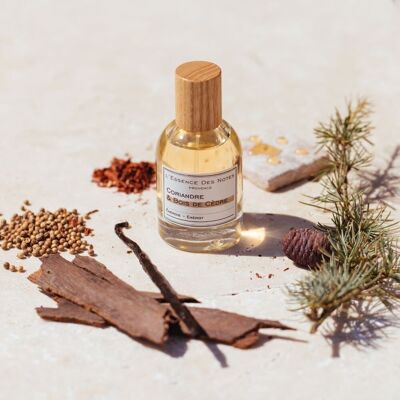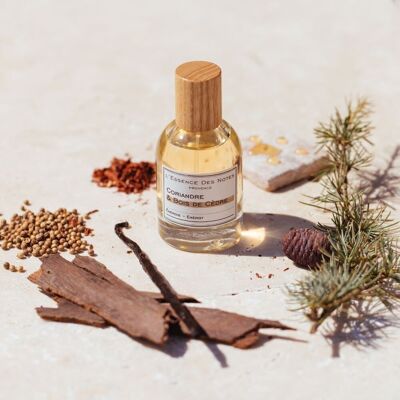


A marvel of complexity that will make you discover the infinite aromatic palette of coffee. Prepare to travel. The Beguiler Adj. Who uses his charm to seduce, who attracts with his affable and engaging manners. Country: Ethiopia Region: Guji Farm / washing station: Dari / Dola area Producer: Abiyot Boru Varieties: 74110, 74112 & Heirloom Treatment process: Natural Altitude: 2,000 to 2,300m Harvest period: November - January Tasting notes: mango, white flowers, coconut SCA score: 87.5/100 Level of complexity: High Acidity: Medium Body/power: Soft and silky NOT.m - Terroir Our Beguiler comes from the green hills of the Dola region, in the western part of Guji. Coffee farmers cultivate their plants there with the greatest care and the rich and fertile land, adorned with local trees such as Cordia Africana, Acacia and Albizzia, provide an environment conducive to high quality coffee crops. The Dari washing station is ideally located in the heart of these cultures. The particularity of Ethiopian coffees lies in the forest cultivation model. Since ancient times, coffee has been grown in dense, humid high altitude canopies. In contact with multiple other woody species, the coffee trees are naturally protected from bad weather and receive the nutrients necessary for the good development of the cherries, without the need for pesticides. Thanks to this biodiversity, almost 95% of Ethiopian coffees are organic (but only a handful of them can afford certification). N.m - Producer The Dari washing station is one of the most famous in the region, masterfully managed by Abiyot Boru, a native of the region and himself the son of producers. Abiyot Boru founded Buno General Trading, a high-end coffee export company, and has given itself the mission of supporting the excellence and sustainability of local production through concrete actions: zero-interest loans for farmers, an additional bonus for each kilogram delivered of fully ripe cherries to encourage the highest quality, or the creation of a school benefiting all washing stations in the sector. Coffee trees grow at high altitude, between 2,000 and 2,300m, giving beans with a high density and thus providing considerable aromatic complexity. N.f - Varieties 74110: Apparently a postal code, it is indeed a variety of coffee, also called "Gibirinna". The first 2 digits correspond to 1974, the year the variety was developed. Originally created for its resistance to disease and its good profitability, Gibirinna has tastefully demonstrated its place among the greatest coffees ever since. 74112: or "Serto", quite close to 74110, it comes from the same original coffee tree. It stands out slightly not a stronger acidity on the palate. Heirloom: generic term that could be translated as “endemic”. Far be it from us to hide the details of this variety from you, some producers simply do not know precisely which variety grows in their field. A little room for mystery! N.m - Treatment process This is the natural process (or dry process): the coffee cherries are not pulped before drying. The grain therefore dried with its fermenting pulp, giving it more sweetness and body. The cherries were hand-picked to remove any visible defects, and were then taken to the washing station by the many smallholders who live in the area. The cherries were then placed on the raised drying beds (called “African beds”) and dried for approximately 21 days. Once dry, they were pulped to remove the husk and keep only the green grains. These were finally sent to Addis Ababa to be sorted, classified by size and exported.



















